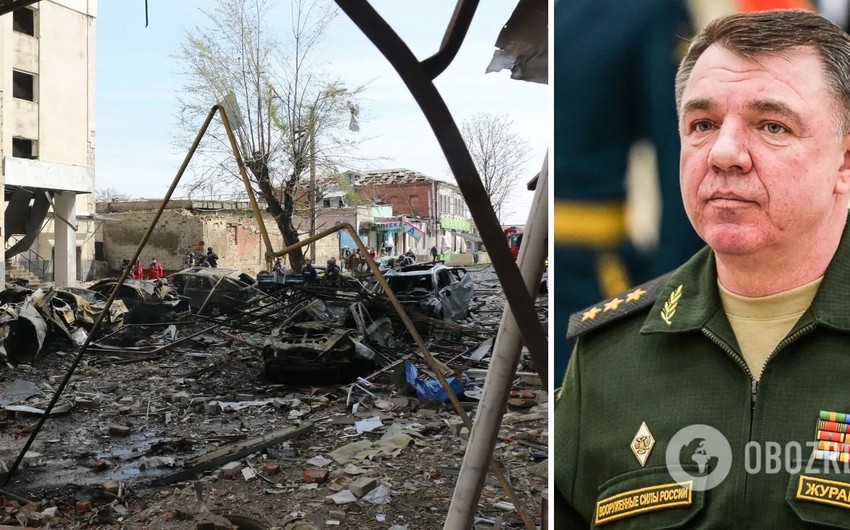Since the early days of the war against Ukraine, Russia has been bombarding Kharkiv with banned cluster munitions that have destroyed houses and killed civilians in an instant. The commander of the actions of the Russian Armed Forces to capture the city was Colonel General of the Russian army Alexander Zhuravlyov, who previously led one of the most brutal Russian operations in the Syrian war, Report informs referring to an article by CNN.
Through analysis of satellite imagery in collaboration with the Centre for Information Resilience (CIR) and on-the-ground investigations, CNN has identified the rocket artillery brigade that launched the cluster munitions attack in residential districts of Ukraine's second city on the day Kiriukhina and her neighbors were attacked. That brigade reports directly to same military leader -- Colonel General Alexander Zhuravlyov -- who oversaw one of the most brutal chapters of Syria's war.
CNN traced 11 Smerch rockets that landed in Kharkiv on February 27 and February 28 back to Russia's 79th Rocket Artillery Brigade, based in Russia's Belgorod region.
That brigade reports directly to the leadership of the Russian military's Western Military District (WMD), one of five military districts in the Russian military, based in the western part of Russia.
Multiple military experts told CNN that Zhuravlyov -- the Russian equivalent of a theater commander in the US military -- is the only officer with the authority to order a Smerch rocket attack in his district. As a high-value weapon, it needs senior sign-off.
Cluster bombs are banned under an international treaty — the 2010 Convention on Cluster Munitions — that prohibits the use, transfer, production and stockpiling of the weapons. The treaty cites the failure of many submunitions to explode on impact, leaving dangerous ordnance in fields and urban areas that could kill or maim people. Russia, Ukraine, the United States and Israel are among the countries who are not signatories to the treaty.


 https://static.report.az/photo/cbeb7e4c-9696-382a-9782-67ddce15448c.jpg
https://static.report.az/photo/cbeb7e4c-9696-382a-9782-67ddce15448c.jpg

